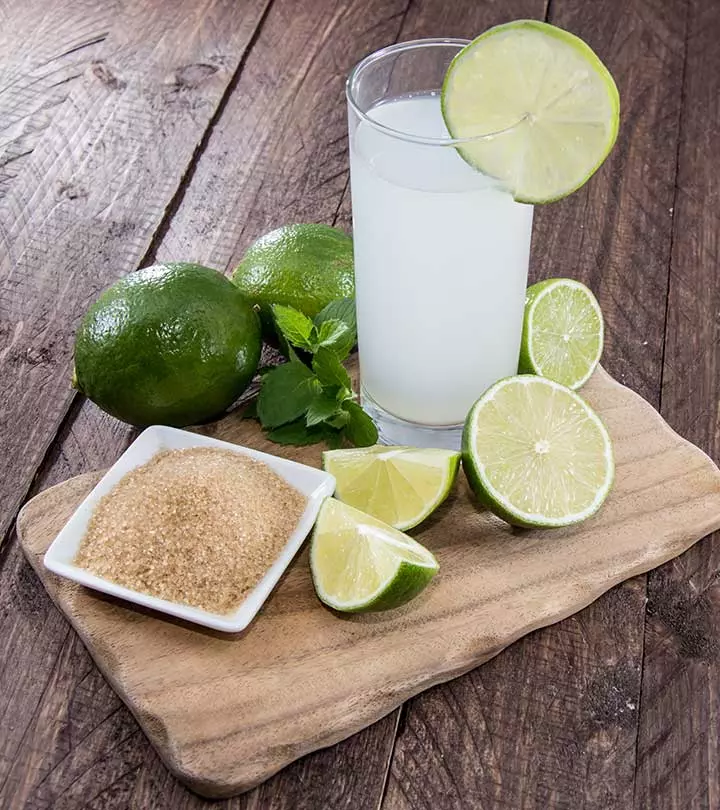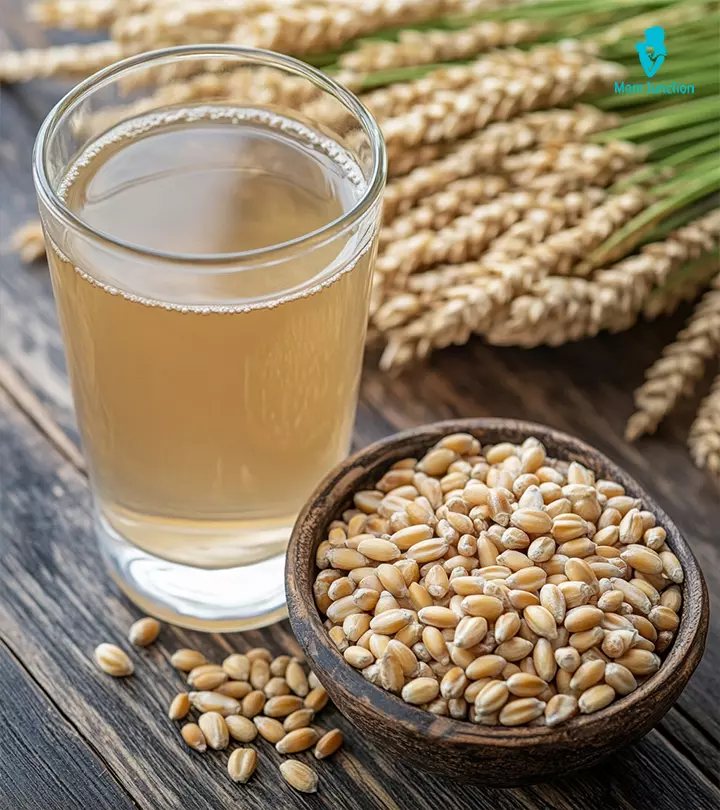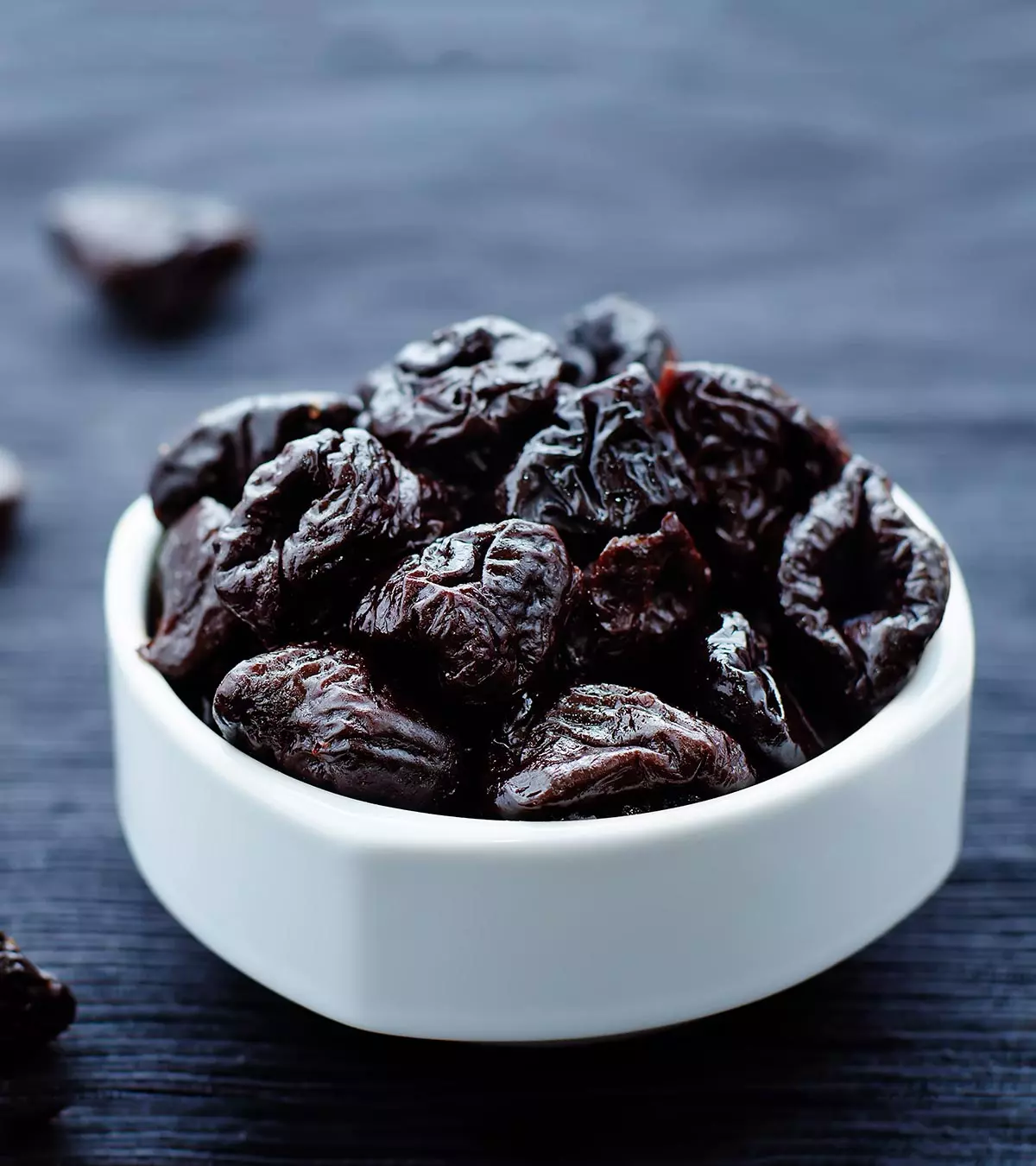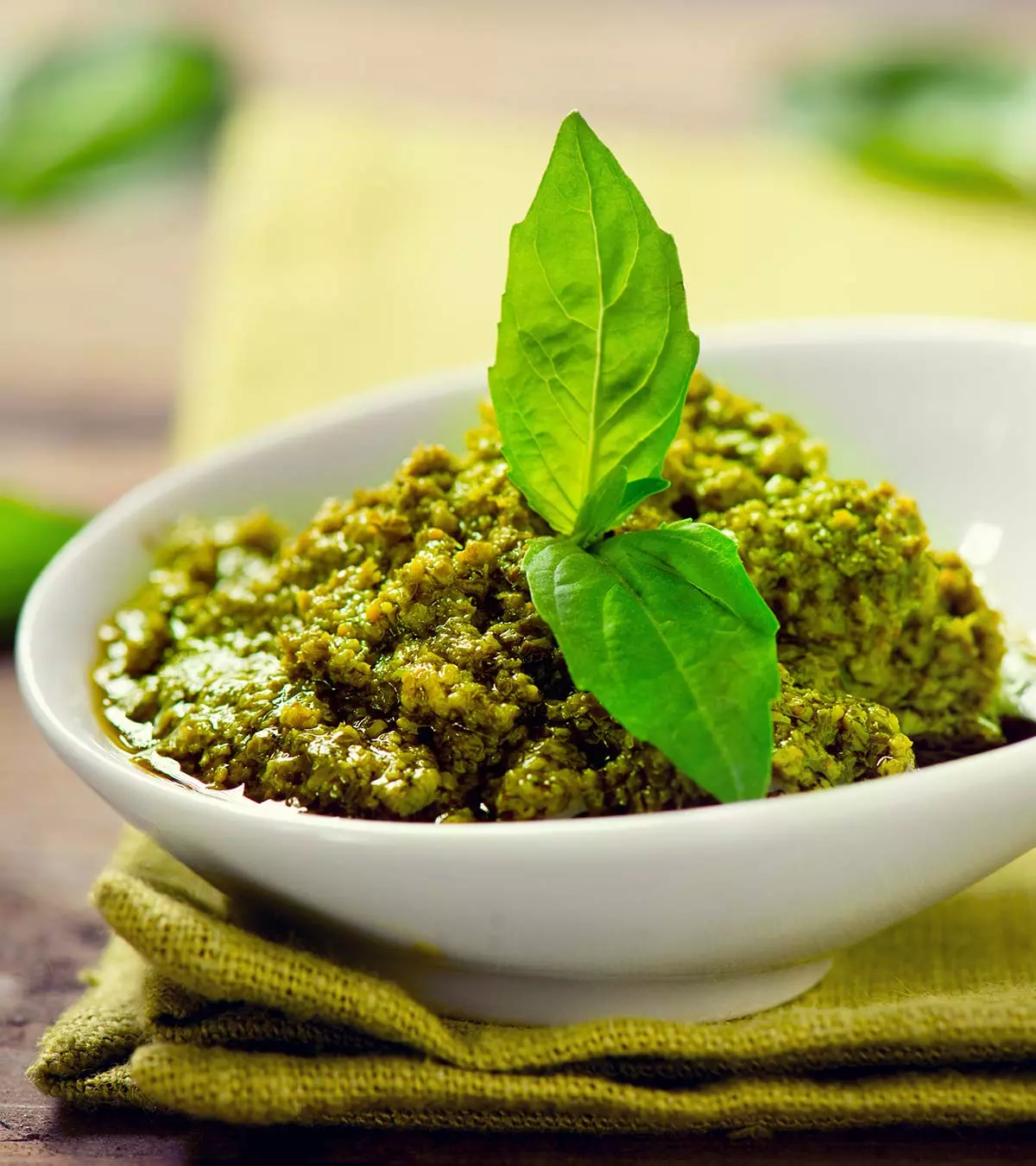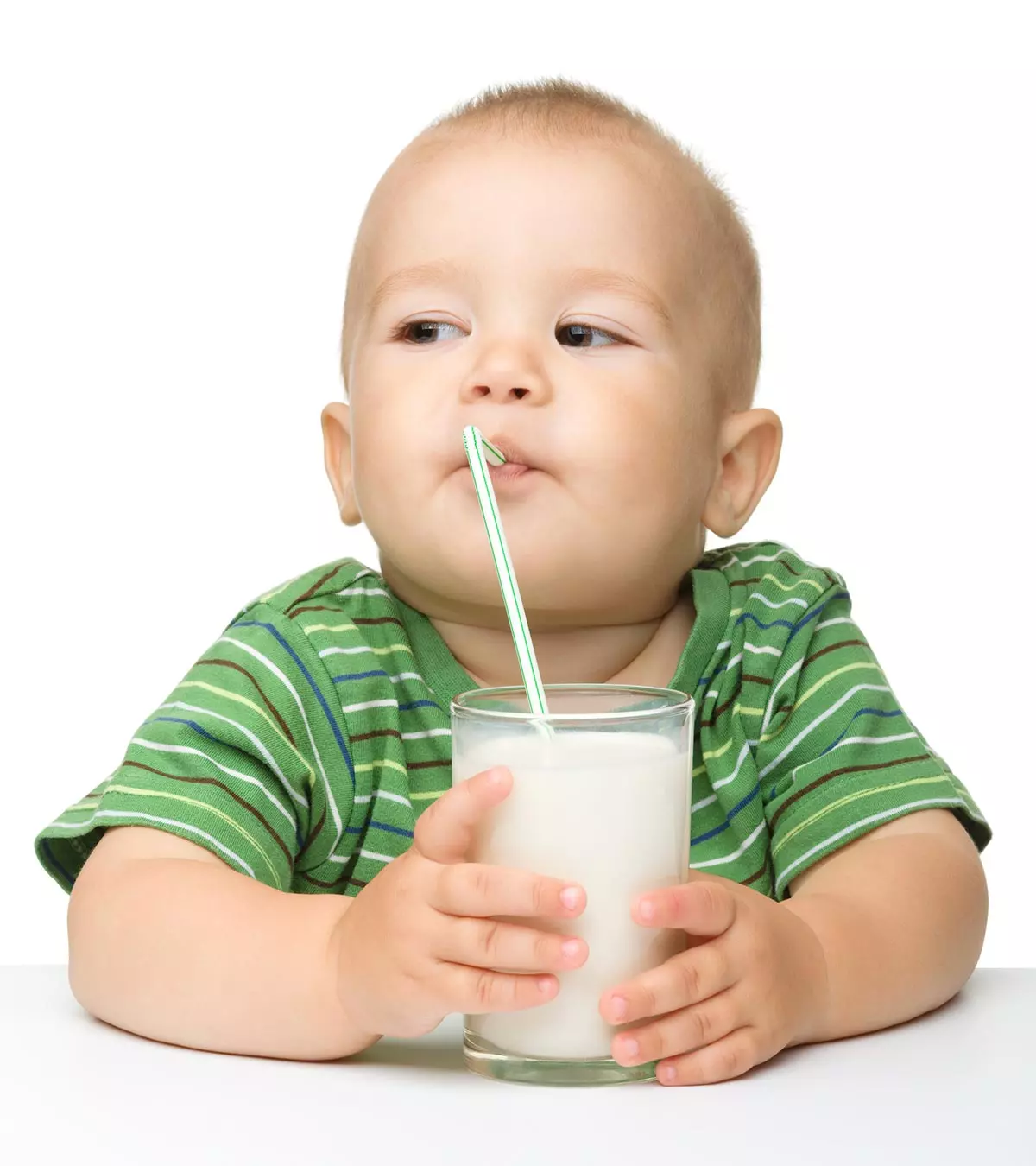
Image: Shutterstock
Soy milk, as the name suggests, is derived from soybeans. If you are considering introducing your little one to this plant-based milk, the benefits of soy milk for toddlers should first be considered.
Soy milk is a nutritious and vegan alternative to cow’s milk. It is high in protein and can benefit your child’s health (1). However, if you are thinking of feeding your children soy milk instead of cow’s milk, you should consider its nutritional value and possible side effects.
Scroll through this article to learn about the nutritional value of soy milk and if it is beneficial for toddlers.
Key Pointers
- Soy milk is commonly used as an alternative to cow milk for toddlers who are intolerant to it.
- The calorie content in soy milk is lower than in cow milk, but the protein content is almost the same.
- It is important to choose soy milk fortified with calcium, vitamins, and folate to prevent calcium deficiency in toddlers.
- However, some toddlers may have allergic reactions to soy milk, so it is important to seek medical advice before giving it to them.
Soy Milk Vs Cow Milk
There are many differences between soy milk and cow milk when it comes to nutritional content (1) (2).
It has been found that whole milk tends to contain around 61 calories, while soy milk contains just 38 calories per 100g serving. When it comes to fat content, cow milk has 3.2g of fat as opposed to 2.12g of fat in a serving of enriched soy milk.
In terms of protein content, whole milk and soy milk are nearly the same with 3.27g and 3.55g respectively.
 Experts say
Experts saySoy Milk And Calcium Content

Image: Shutterstock
Compared to cow milk, soy milk is a bit low on its calcium content (1) (2). Which is why, if you do decide to give your toddler soy milk, you must consider choosing a fortified form of soy milk that is enriched with important nutrients like folate, calcium, vitamin A, D and B.
It has also been found that soy milk contains certain compounds known as phytates, which tend to decrease calcium absorption – so you’ll need to make sure your toddler consumes more calcium-rich foods if he’s been drinking soy milk (3). You can choose to introduce your toddler to foods like yogurt, cheese, canned salmon and orange juice fortified with calcium (4).
Is Soy Milk Good For Toddlers?

Image: Shutterstock
Consumption of non-fortified soy milk as opposed to cow milk could create a deficiency of calcium in the toddler. However, growing children need calcium for the proper growth and development of bones, teeth, hormones, muscles, and even the central nervous system. In such cases, you may choose to switch to soy milk that has been fortified with calcium and other important vitamins (5).
In general, soy milk can turn out to be an impressive alternative for milk for toddlers who are intolerant to cow’s milk. However, if your toddler has milk allergy, they may also experience allergies when given soy-based foods, including soy milk.
In such cases, it is best to seek a pediatrician’s advice before turning to soy milk for toddlers.
 Quick tip
Quick tipThe Side Effects Of Soy Milk For Toddlers

Image: Shutterstock
It is also important to note the various health concerns that arise as a result of consumption of soy milk.
- Soy milk is often used as a substitute for cow’s milk, but many a time, soy milk may also trigger severe allergic reactions. Consumption of soy milk could cause itching, skin rashes, abdominal pain etc (6).
- Soy milk has phytates which hinders the absorption of a few nutrients such as iron, zinc and phosphorus. This may cause a few nutritional deficiencies if the meals are not properly balanced (7).
Frequently Asked Questions
1. How much soy milk is too much for a toddler?
A toddler should not consume more than 16-24 ounces of milk, including soy milk, per day (8).
2. What is the healthiest milk for a toddler?
Children under two years require extra fat for brain development. Whole-fat cow milk is full of nutrition and is one of the most healthy options for a toddler (8).
3. Can soy milk affect a toddler’s hormone levels?
Soy milk is plant-derived milk that could be an excellent nutritious and vegan alternative to cow’s milk, especially for toddlers with cow milk intolerance. There are several benefits of soy milk for toddlers, and it might help boost the immune system, as it is high in protein and other nutrients. However, due to the low caloric and calcium content, a calcium-fortified form of soy milk is preferred to avoid calcium deficiency. It may be prudent to look for any allergic reactions and digestion problems and take your doctor’s approval before trying any new food option for your toddler.
Soy milk is a preferred alternative for toddlers who are lactose intolerant or whose parents wish to opt for vegan milk sources. Although soy milk is high in nutrition and is easily digestible, there are some contradictions to its usage. This infographic highlights the side effects of soy milk and provides instances where it might not be a suitable milk alternative. Illustration: Momjunction Design Team
Illustration: Is It Safe To Switch To Soy Milk For Toddlers?

Image: Stable Diffusion/MomJunction Design Team
References
- Soy milk, unsweetened, plain, shelf-stable.
https://fdc.nal.usda.gov/fdc-app.html#/food-details/1999630/nutrients - Milk, whole, 3.25% fat, with added vitamin D.
https://fdc.nal.usda.gov/fdc-app.html#/food-details/746782/nutrients - How do phytates impact calcium absorption?
https://www.bonehealthandosteoporosis.org/patients/treatment/calciumvitamin-d/ - Calcium.
https://www.betterhealth.vic.gov.au/health/healthyliving/calcium - Calcium.
https://ods.od.nih.gov/factsheets/Calcium-HealthProfessional/ - Soy Allergy.
https://my.clevelandclinic.org/health/diseases/11320-soy-allergy - Are anti-nutrients harmful?
https://nutritionsource.hsph.harvard.edu/anti-nutrients/ - Feeding Your Baby and Toddler (Birth to Age Two).
https://www.mottchildren.org/posts/your-child/feeding-your-baby-toddler#feeding-1-2yrs - Cow’s Milk Alternatives: Parent FAQs.
https://www.healthychildren.org/English/healthy-living/nutrition/Pages/milk-allergy-foods-and-ingredients-to-avoid.aspx - Thyroid Issues? What You Should Know About Foods and Supplements to Avoid.
https://health.clevelandclinic.org/thyroid-issues-what-you-need-to-know-about-diet-and-supplements - Angela Maria Caprio et al.; (2022); Case report: Goiter and overt hypothyroidism in an iodine-deficient toddler on soy milk and hypoallergenic diet.
https://www.frontiersin.org/journals/endocrinology/articles/10.3389/fendo.2022.927726/full - Straight Talk About Soy
https://nutritionsource.hsph.harvard.edu/soy/ - By the way, doctor: Children and soy milk
https://www.health.harvard.edu/newsletter_article/By-the-way-doctor-Children-and-soy-milk
Community Experiences
Join the conversation and become a part of our nurturing community! Share your stories, experiences, and insights to connect with fellow parents.
Read full bio of Dr. Neema Shrestha
Read full bio of Jessica Albert
Read full bio of Swati Patwal
Read full bio of Vidya Tadapatri






 Quick fact
Quick fact





